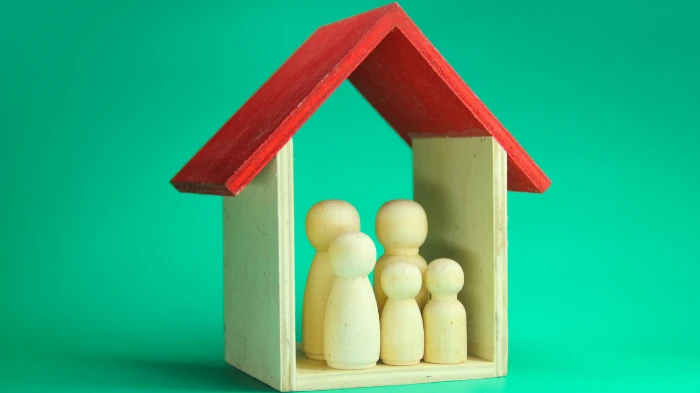A matrimonial home (or marital home) is the property in which a married couple or civil partners live. In England and Wales, matrimonial home rights, also known as home rights, give both spouses the legal right to live in the family home (including following divorce), regardless of which spouse is the legal property owner (i.e. joint or sole ownership). In other words, no matter who owns your family home, because you are married or in a civil partnership, you have a right to that property. This is not the case for those who cohabit (unless they have a cohabitation agreement) and are not legally married or in a civil partnership.
Matrimonial home rights or home rights typically apply to properties that are mortgaged, rented or provided by the local authority. It is important to note that you automatically receive matrimonial home rights in the UK as soon as you get married or enter a civil partnership. The whole purpose of having matrimonial home rights is to protect the non-owning spouse in the event of divorce or separation.
If you leave your marital home in the UK following divorce, it is also important to remember that you will still retain your matrimonial home rights. Just because you have moved out to allow your ex-partner to stay in the family home does not mean that you lose your legal right to that property.
Matrimonial home rights notice
Even though your matrimonial home rights are automatic as a married person, it is still advisable to apply to the Land Registry for a matrimonial home rights notice (or notice of home rights). By registering a matrimonial home rights notice with the Land Registry, you are making it clear to potential buyers, lenders and other parties that you have a legal interest in the property. This will then prevent the sale of the family home without your consent. As such, putting in place a matrimonial home rights notice with the Land Registry is a key step in the divorce settlement negotiation process, and it will ensure that you and your children are protected from being homeless at any stage.
However, while matrimonial home rights provide vital protection during the divorce process, it only applies to one property and not multiple properties. As such, you can only apply for a matrimonial home right notice for the main family residence.
How long do matrimonial home rights last?
Matrimonial home rights do not last forever and will end if/when:
- You and your ex-spouse receive your divorce Final Order (decree absolute), which formally ends your marriage.
- One party dies.
- The court orders that one partner should have exclusive occupation of the family home.
If there is an ongoing dispute about who owns the property, it may be possible to ask the family court to put in place a ‘Continuation Order’. A Continuation Order is issued by the court and gives a person permission to continue living in the family home while getting divorced, typically where financial proceedings have not yet concluded.
Limitations of Matrimonial Home Rights
It is important to consider that matrimonial home rights do have some limitations and, as such, do not necessarily provide you and your children with unlimited legal protection. You may lose your matrimonial home rights in certain circumstances, including if:
- A judge orders you to leave your home in order to reach a fair divorce financial settlement.
- A judge orders the sale of the property during the financial settlement process.
- A judge issues an Occupation Order, which states who can and cannot live in the family home (e.g. in the case of domestic violence).
Matrimonial home rights also do not apply to property jointly owned by multiple parties, such as a spouse and another person. To understand and protect your marital home rights (and for your children), it is important to speak to a family law solicitor who can advise and represent you.





